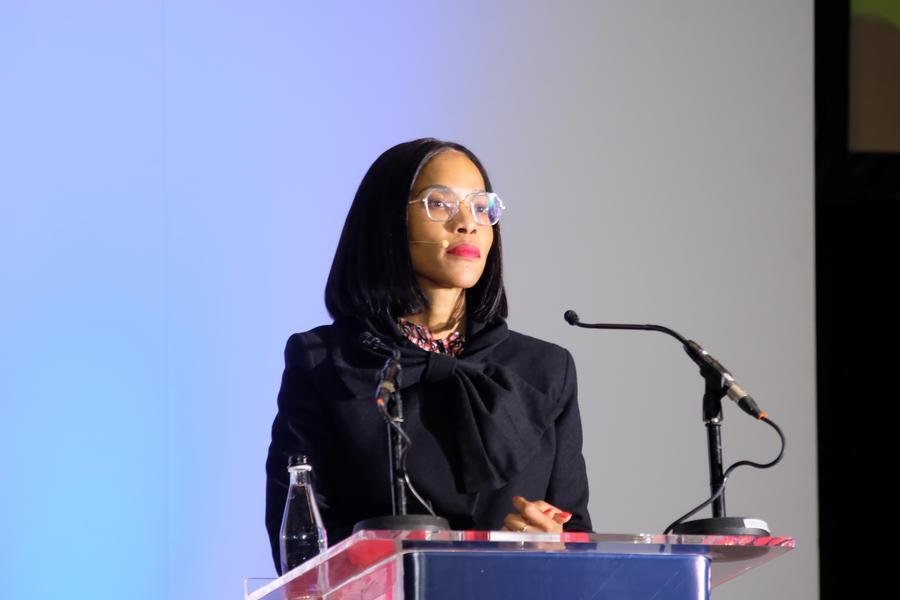Leading voices in real estate, policy and investment issued a strong call for capital to be directed into alternative residential sectors to drive sustainable growth and inclusivity in South Africa’s urban landscape.
The second day of the Reside Summit 2025 at the Sandton Convention Centre in Johannesburg was marked by a call for established financiers and institutional investors to allocate funding towards real estate developments focusing on multifamily rental housing, retirement living and student accommodation.
Demographic shifts and economic pressures are driving demand for affordable homes, purpose-built student accommodation and dignified retirement living. Speakers at the Reside Summit 2025 emphasised that these sectors offer both social impact and steady returns for investors willing to look beyond traditional real estate classes.
“If we want cities that work for everyone, we need capital that moves with purpose. Alternative residential sectors like student housing and retirement living, aren’t fringe – they’re foundational to inclusive urban growth. We thank all our partners for showing up with bold ideas and real commitment. Together, by reshaping spaces, we’re reshaping futures,” says Debbie Tagg, Chairperson of the Reside Summit.
The Development Bank of Southern Africa (DBSA) is one of the major financiers that believes in investing in alternative real estate markets—particularly when these investments align with its core mandate of addressing South Africa’s most pressing social and developmental needs.
Palesa Ryan, the DBSA’s Head for Social, Health, and Education, reaffirmed the DBSA’s commitment to supporting real estate developments, particularly those that address the country’s most urgent housing needs.
“The DBSA stands ready to finance real estate developments across South Africa, but our mandate is clear: our primary focus is on affordable housing. We believe that by channelling capital into this sector, we can drive both social and economic transformation,” said Ryan during her presentation at the Reside Summit on 10 July.
She emphasised that the DBSA is actively seeking partnerships with developers, municipalities and other financiers to unlock new affordable housing projects.
Ryan added: “Affordable housing is not just a social imperative – it’s a resilient asset class that can deliver stable, long-term returns. We are eager to work with stakeholders who share our vision for inclusive, sustainable urban growth.”
Retirement living: integrating health, wealth and dignity
Under the theme “Transforming Spaces, Enriching Lives”, this year’s Reside Summit also shone a spotlight on retirement living and how this housing option integrates health, wealth and dignity.
As South Africa’s population ages, retirement living has emerged as a sector in need of attention, said Tim Gibson, Director at Herdsmore.
“Retirement living in South Africa is at a crossroads. We must go beyond simply providing accommodation and focus on integrated communities that offer healthcare, social engagement and a sense of dignity for our seniors,” said Gibson.
Herdsmore, under Gibson’s leadership, is pioneering the development and management of modern retirement communities that blend independent living with access to healthcare, wellness programs and community activities. Their approach is rooted in international best practices but tailored to South Africa’s unique demographic and cultural context.
Gibson stressed the importance of collaboration between the public and private sectors to unlock capital and scale up quality retirement options: “We see enormous potential for impact and returns in this space. By working together, developers, investors, and government can create environments where older South Africans thrive, not just live.”
Student accommodation: building for the next generation
The acute shortage of quality student accommodation was a major focus at the summit.
Kagisho Mamabolo, CEO of the Private Student Housing Association (PSHA), estimated that South Africa faces a shortfall of 300,000 student beds. PSHA, established in 2019 by leading private providers, now represents 80,000 beds nationwide – many of which meet or exceed government standards.
Mamabolo explained that student accommodation is about much more than just providing a place to sleep: “Student accommodation is a very important part of our youth’s future and the higher education system. It’s not just about providing beds, it’s about ensuring the dignity of students, supporting their futures and enabling their success.”
While there is strong interest from private sector investors to support new student accommodation developments, Mamabolo noted that current government policy is making it increasingly difficult for these investments to be viable.
In 2023, the National Student Financial Aid Scheme (NSFAS) introduced a cap limiting the maximum amount paid for a student’s accommodation to R52,000 per year. The intention was to control costs and standardise spending, but, as Mamabolo pointed out, this cap is too low for providers to cover the real costs of building and running quality, compliant student housing.
Research by PSHA shows that the true cost to sustainably provide accommodation that meets government norms and standards is closer to R66,000 per bed per year. The cap makes it financially unfeasible for private providers to invest in or maintain student housing, threatening the sector’s sustainability and limiting students’ access to safe, dignified accommodation.
As a result, PSHA has called for the removal of the NSFAS cap and for funding to better reflect the actual costs of delivering quality student housing, so that providers can continue to meet the needs of South Africa’s growing student population.
As day two of the Reside Summit 2025 concluded, the message was clear: South Africa’s urban future depends on bold, coordinated investment that includes alternative residential sectors. By directing capital into affordable housing, retirement living and student accommodation, stakeholders can achieve sought-after sustainable returns as well as social impact – reshaping cities and enriching lives for generations to come.
ABOUT RESIDE SUMMIT
Launched in 2023, the Residential Investment & Development (Reside) Summit aims to bridge the gap between stakeholders in the public and private sector, construction firms, property developers, investors, financial institutions, and industry bodies.




